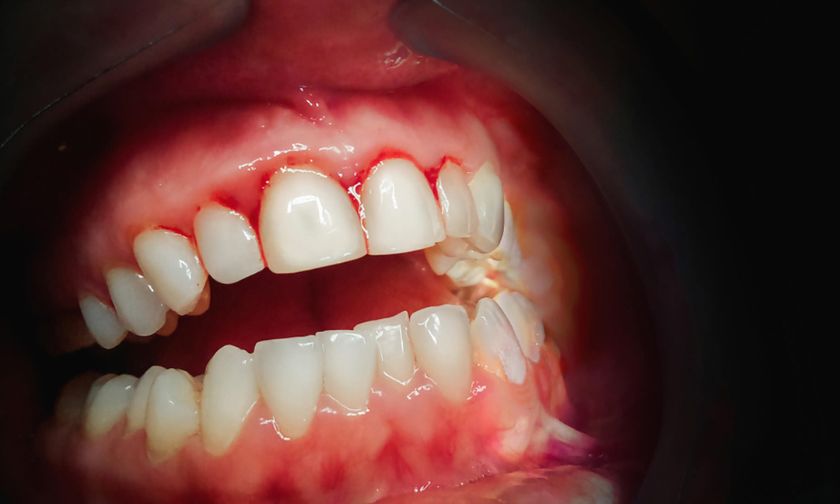
Gum infections don’t always shout—they whisper, then suddenly scream. Bleeding gums? Bad breath? Loose teeth? These are early signs. If ignored, gum disease can progress fast. So, can periodontal treatments heal gum infections? Yes—but only if you act before it’s too late.
What Causes Gum Infections Anyway?
Gum infections start when plaque builds up along the gumline. Plaque contains harmful bacteria. If not removed, it hardens into tartar and causes inflammation. Eventually, this leads to gingivitis—the first stage of gum disease. Left untreated, it becomes periodontitis, a much more severe condition.
Why Regular Brushing Isn’t Always Enough
Even if you brush daily, bacteria can hide below the gumline. Standard brushing can’t reach deep pockets. That’s why gum infections sometimes progress silently. While daily care helps, it doesn’t replace periodontal treatments when infection occurs. Your gums need expert intervention.
Deep Cleaning: The First Line of Defense
One of the most common periodontal treatments is scaling and root planing. It sounds intense, but it’s not. Dentists numb the area and then clean deep under the gums. They also smooth the roots to help the gums reattach. This process effectively removes bacteria and reduces inflammation.
Antibiotic Gels and Rinses Help Kill Bacteria
Sometimes, dentists use local antibiotics after deep cleaning. These come in gels or slow-release strips. Placed directly in gum pockets, they fight infection for days. Antibacterial rinses may also be recommended at home. These additional steps give periodontal treatments an extra boost.
Lasers Offer High-Tech Healing
Yes, lasers aren’t just for sci-fi movies. Laser-assisted periodontal therapy precisely targets infected tissue. It removes bacteria while preserving healthy gum tissue. This technique reduces pain, bleeding, and recovery time. It’s one of the most advanced periodontal treatments available today.
Can Gums Fully Heal?
That depends on how early you start. In the early stages, gums can fully recover. In moderate cases, infection stops, and gums reattach to the teeth. In advanced stages, bone and tissue loss may be permanent. However, periodontal treatments can still halt progression and improve gum health.
Surgery May Be Needed for Advanced Infections
If pockets are too deep, flap surgery may be required. Your dentist lifts the gums, cleans thoroughly, and then stitches them back. In some cases, bone grafts or soft tissue grafts restore lost structure. Although surgical, these periodontal treatments are highly effective when less invasive options fail.
What Happens If You Do Nothing?
Ignoring gum infections leads to significant consequences. Teeth become loose, gums recede, and the jawbone weakens. Eventually, tooth loss is inevitable. Moreover, gum disease is linked to heart issues, diabetes, and inflammation throughout the body. That’s why timely periodontal treatments are so important.
Offbeat Tip: Watch Your Mouth—Literally
Your mouth offers early warnings—if you look. Check your gums regularly. Are they red or swollen gum? Do they bleed when brushing? Take selfies or use a mirror. Spotting problems early makes periodontal treatments more successful. Strange advice? Maybe. But it works.
Maintenance Is Key After Treatment
Healing doesn’t end with treatment—it starts there. Follow your dentist’s advice closely afterward. Brush gently, floss daily, and use recommended rinses. Visit your periodontist regularly for cleanings and checkups. Maintenance prevents infections from returning stronger. Consistency makes periodontal treatments truly effective long-term.
Gum Health Is Worth the Effort
Gum infections seem minor, but they can snowball into severe dental disasters. Thankfully, periodontal treatments offer real solutions. From deep cleanings to high-tech lasers, these treatments stop infections and restore gum health. So, listen to your gums. Don’t wait until pain forces action. Treat early, heal completely, and smile confidently.

